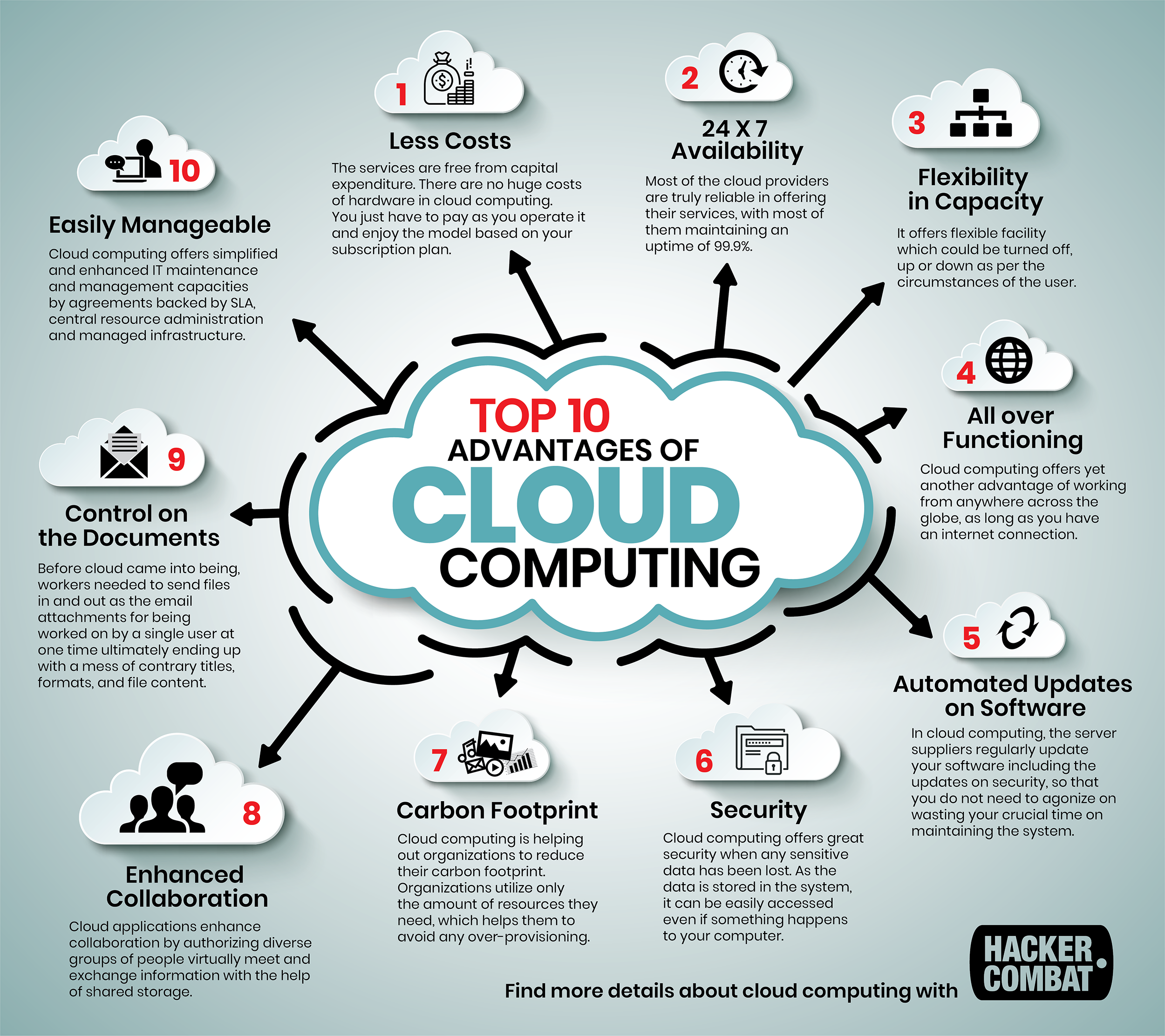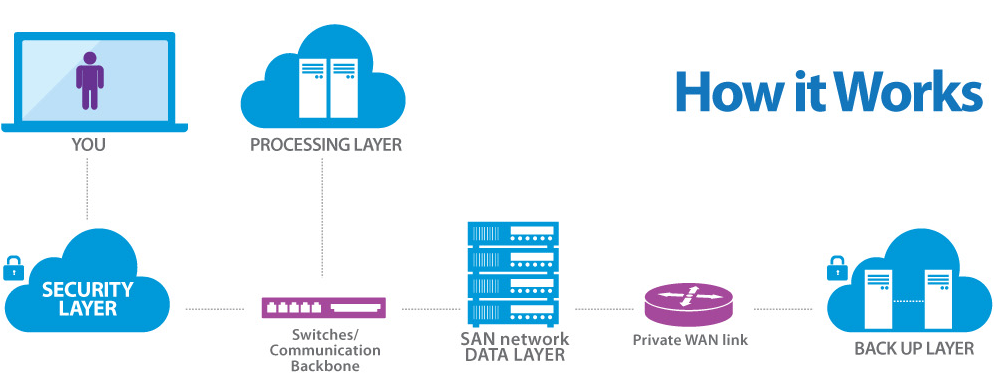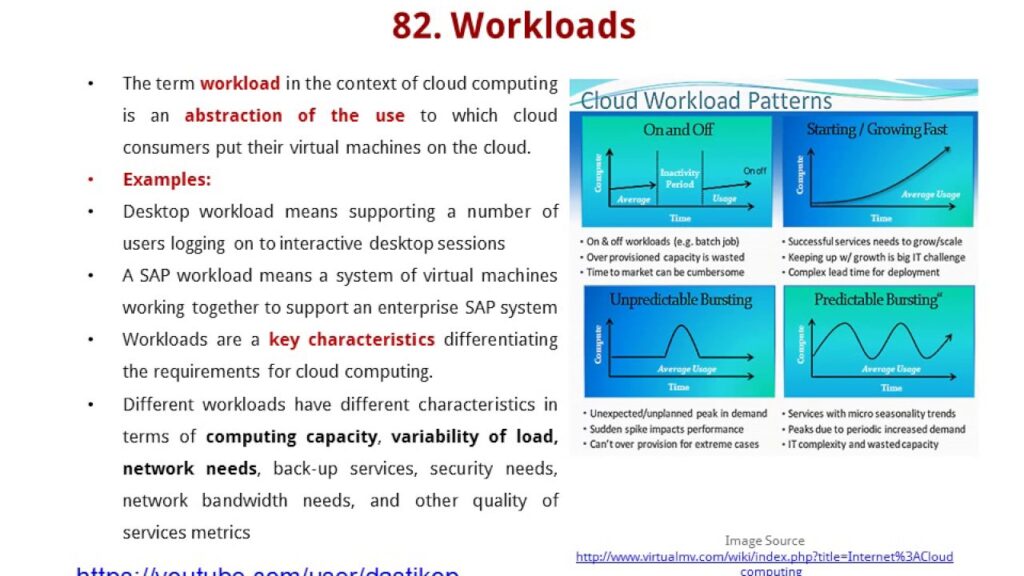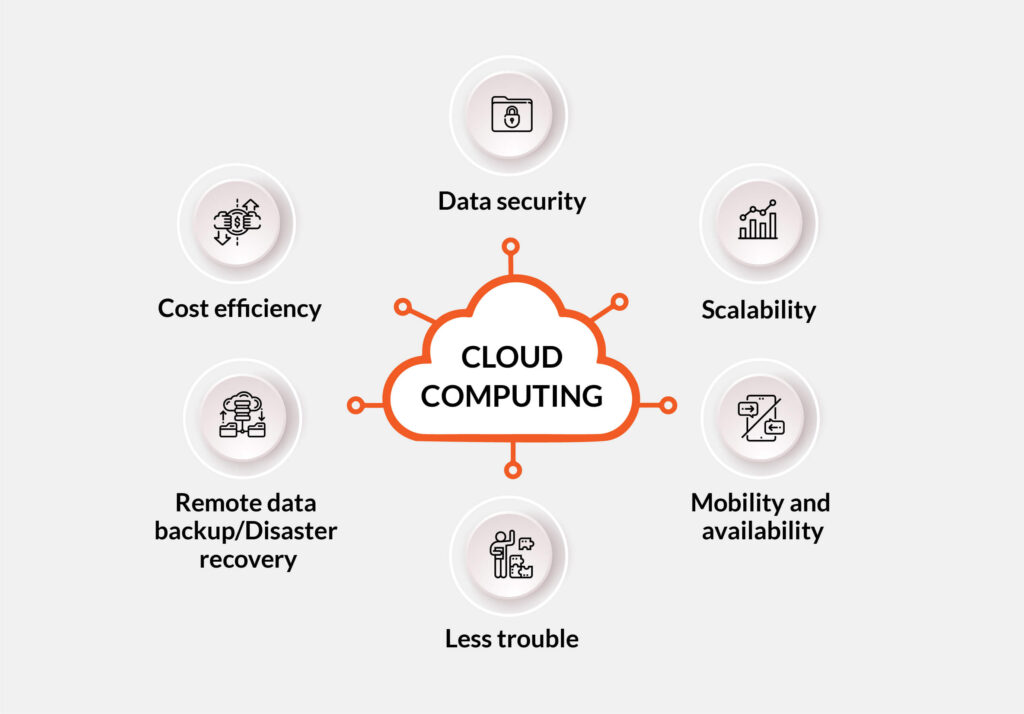As technology continues to evolve, businesses are constantly seeking out new solutions to improve their operations. One of the most significant changes in recent years has been the widespread adoption of cloud computing. Cloud computing offers businesses a range of benefits, from increased flexibility and scalability to reduced costs and enhanced security. It’s no wonder that more and more companies are making the move to the cloud.
But why exactly is cloud computing such a game-changer for businesses? In this article, we’ll explore the top reasons why companies are making the switch to cloud computing. From increased efficiency to improved collaboration and data management, we’ll delve into the key advantages of cloud computing and explain why it’s become such a popular choice for businesses of all sizes and industries. So if you’re considering making the move to the cloud, read on to discover why it could be the best decision you make for your business.
Cloud computing provides many benefits for businesses, such as improved scalability, cost savings, faster deployment, and better security. It allows organizations to quickly access computing resources when needed and can easily scale up or down as needed. Cloud computing also eliminates the need to purchase and maintain hardware, helping organizations save on costs. Additionally, cloud computing can help organizations quickly deploy applications and updates, reducing the time it takes to launch new services. Finally, cloud computing provides better security through its shared infrastructure, allowing organizations to have better control over their data and applications.

Introduction to Cloud Computing
Cloud computing is a revolutionary technology that enables users to access computing resources from anywhere, anytime. It is a set of services that includes cloud storage, cloud computing, cloud communications, and cloud security. It is a cost-effective, secure, and reliable way to store, manage, and access data from the cloud. This technology has transformed the way businesses and enterprises operate, offering them a flexible and secure way to store and access their data.
Why Move to Cloud Computing?
Increased Efficiency
One of the biggest advantages of cloud computing is the improved efficiency it provides. By utilizing cloud services, businesses can access their data and applications from anywhere at any time. This eliminates the need to install and maintain hardware and software, resulting in improved efficiency. Additionally, cloud computing services offer scalability and flexibility, allowing organizations to quickly scale their operations as needed.
Cost Savings
Another major benefit of cloud computing is the potential cost savings. By utilizing cloud services, businesses can save on infrastructure costs, such as hardware and software. Additionally, cloud computing services offer reduced administration costs, as there is no need to manage and maintain hardware and software. Finally, cloud computing can help businesses save money on energy costs, as cloud services are more efficient and require less energy to run.
Enhanced Security
Cloud computing also offers enhanced security for businesses. Cloud services are hosted in secure data centers, which are monitored 24/7 to ensure the security of data. Additionally, cloud services offer additional security measures, such as encryption and identity and access management, to protect data and applications. This enhanced security can help businesses protect their data and remain compliant with industry regulations.
Improved Collaboration
Cloud computing also offers improved collaboration capabilities. By utilizing cloud services, teams can collaborate on projects in real-time, share files, and communicate via secure messaging. This improved collaboration can help teams work more efficiently and effectively, improving productivity and increasing the speed of innovation.
Scalability
Finally, cloud computing offers scalability. By utilizing cloud services, businesses can quickly scale their operations as needed. This scalability can help businesses prepare for unexpected growth and easily adjust to changing market conditions. Additionally, cloud services offer a pay-as-you-go pricing model, allowing businesses to only pay for the resources they use.
Frequently Asked Questions
Cloud computing is a revolutionary new way to store and access data. It allows businesses to store and access data from anywhere with an internet connection, as well as to manage resources more efficiently and cost-effectively. Here are some of the most commonly asked questions regarding cloud computing.
What are the benefits of moving to cloud computing?
There are numerous benefits to moving to cloud computing. Firstly, cloud computing allows for faster, more efficient access to data. By using a cloud-based system, businesses are able to access data from anywhere with an internet connection, without having to install software or hardware. This makes it easier to collaborate and share data between users. Secondly, cloud computing is also more cost-effective than traditional methods. By utilizing cloud-based resources, businesses can reduce the cost of hardware and software, as well as save on storage costs. Finally, cloud computing allows for greater scalability, meaning businesses can easily increase or decrease their resources as needed.
What are the risks associated with cloud computing?
The main risk associated with cloud computing is security. As data is stored in a shared environment, there is a risk of unauthorized access or data loss. To protect against this, cloud providers should have strong security measures in place such as encryption, authentication, and secure access. Additionally, businesses should ensure they have a reliable backup system in place, in case of a data breach.
What types of data can be stored in the cloud?
The types of data that can be stored in the cloud varies depending on the cloud provider. Generally, most cloud providers offer storage for files, images, videos, and other types of data. Additionally, cloud providers often offer services such as databases, analytics, and machine learning, which can be used to store and process sensitive data.
How does cloud computing impact the environment?
Cloud computing can have a positive impact on the environment. By using cloud-based resources, businesses can reduce their energy consumption and carbon footprint. Additionally, cloud providers often use renewable energy sources such as solar and wind to power their data centers, which can further reduce their environmental impact.
What are the different types of cloud computing?
There are three main types of cloud computing: Infrastructure-as-a-Service (IaaS), Platform-as-a-Service (PaaS), and Software-as-a-Service (SaaS). IaaS provides access to computing resources such as servers, storage, and networking. PaaS provides a platform for building, testing, and deploying applications. SaaS provides access to applications without the need to install or maintain software. Each type of cloud computing has its own advantages and disadvantages, so it is important to consider your specific needs before choosing a cloud provider.

In conclusion, it is evident that cloud computing offers numerous benefits for businesses of all sizes, making it a compelling option for organizations looking to streamline their operations and reduce costs. From enhanced scalability and flexibility to improved security and accessibility, cloud computing presents a wealth of opportunities to enhance productivity and drive innovation. As the digital landscape continues to evolve, it is clear that cloud computing will continue to play a vital role in the success of businesses across all industries.
As a professional writer, I would highly recommend that businesses consider making the move to cloud computing to stay ahead of the competition and remain agile in the face of rapidly changing technology trends. With the right cloud solution in place, businesses can achieve unprecedented levels of efficiency, collaboration, and growth, all while minimizing their IT costs and reducing their environmental footprint. So, whether you are a small startup or a large enterprise, the benefits of cloud computing are undeniable, and it is time to embrace this technology and take your business to the next level.



